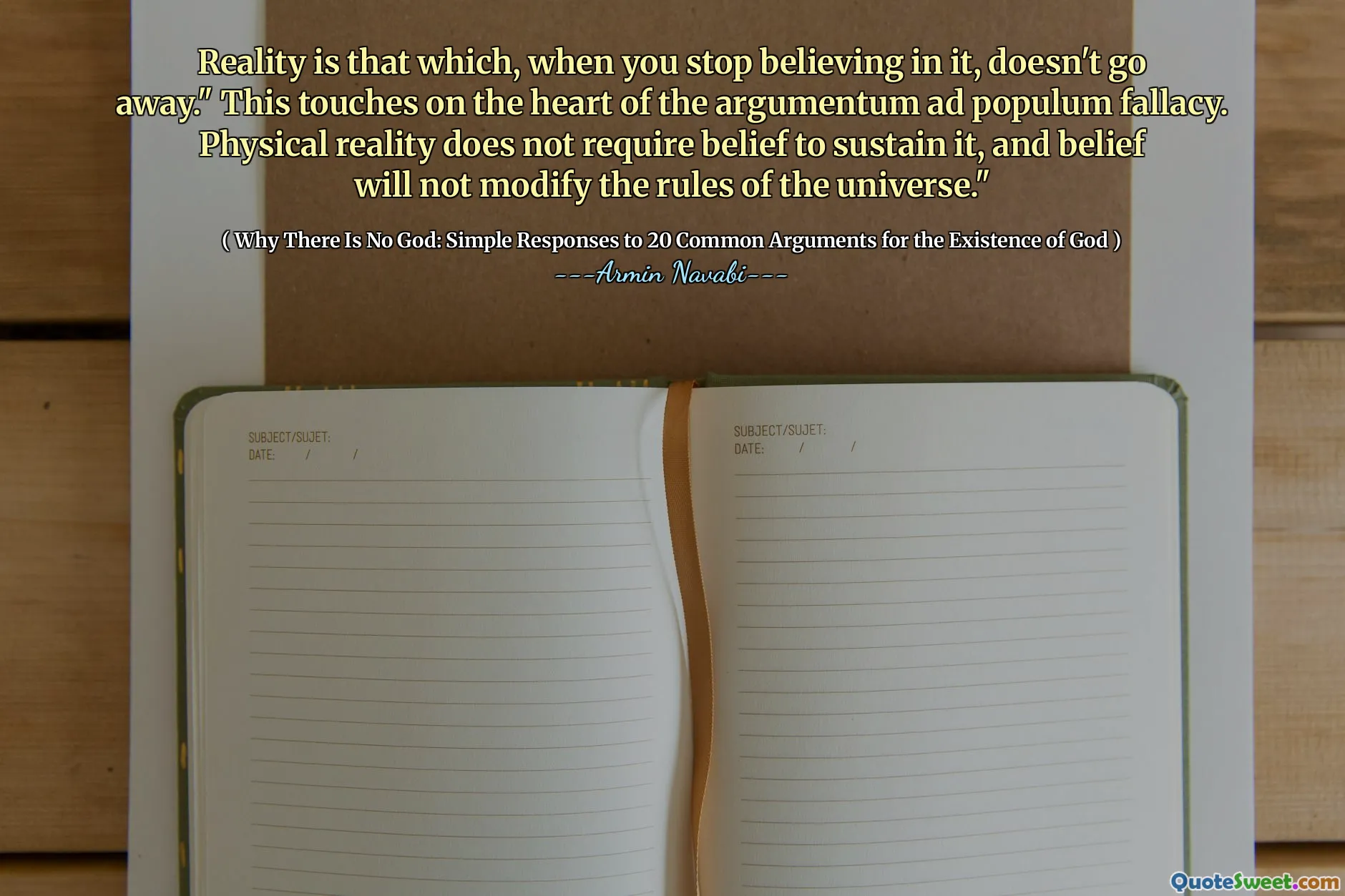
Reality is that which, when you stop believing in it, doesn't go away." This touches on the heart of the argumentum ad populum fallacy. Physical reality does not require belief to sustain it, and belief will not modify the rules of the universe."
The quote emphasizes that reality exists independently of human belief. It suggests that truth and the laws of the universe remain constant, regardless of whether individuals choose to acknowledge or believe in them. This principle challenges the idea that collective belief can alter fundamental aspects of reality, thereby addressing the argumentum ad populum fallacy, which asserts that the popularity of an idea can serve as evidence for its truth.
By pointing out that physical reality persists without the need for belief, the author underscores an important distinction between subjective perception and objective existence. This idea reinforces the notion that understanding reality requires an acknowledgment of facts that exist beyond personal or societal beliefs, prompting readers to consider the nature of truth and existence critically.

